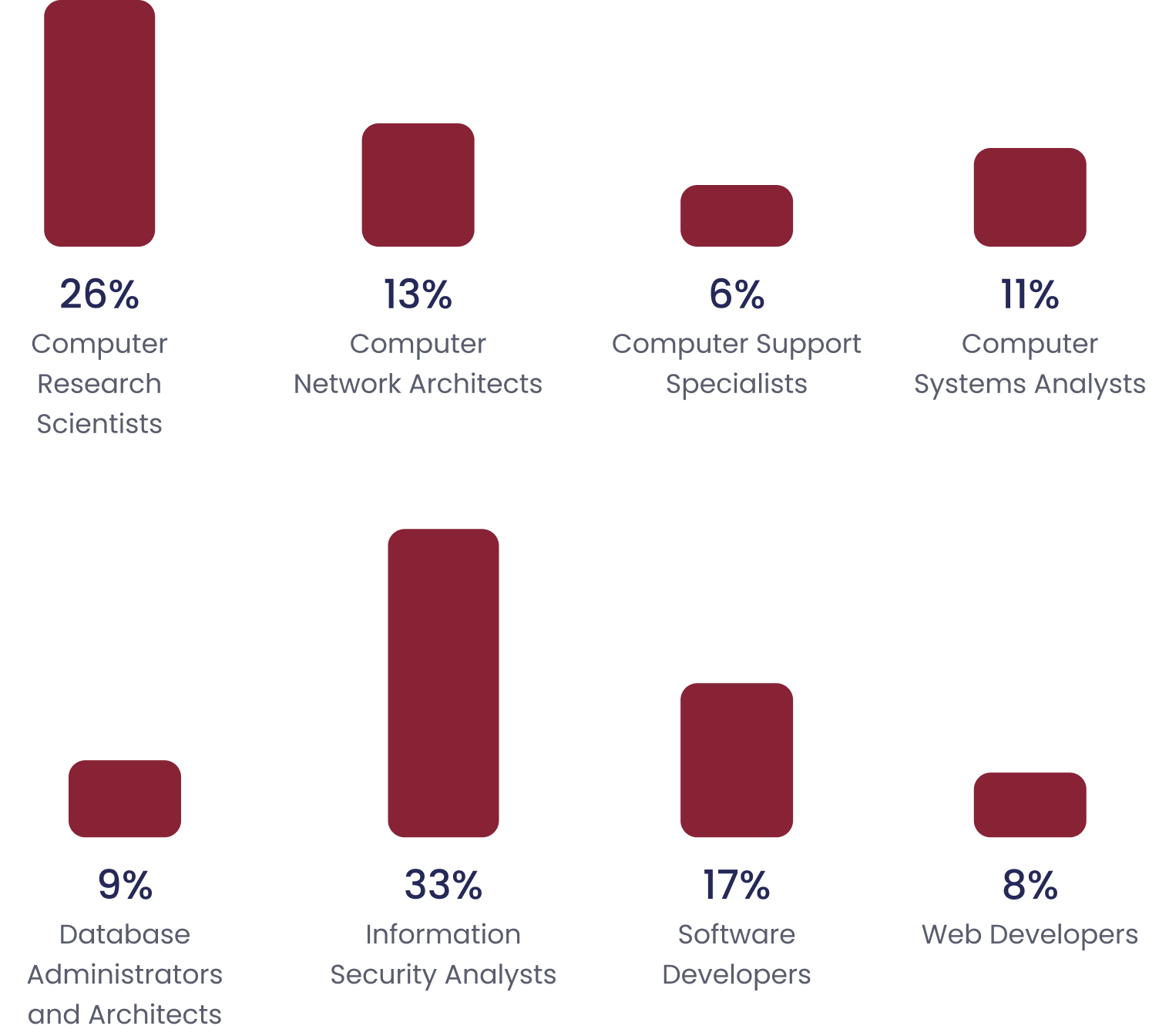The demand for skilled tech professionals continues to grow rapidly. According to the US Bureau of Labor Statistics, employment in computer and information technology occupations is projected to grow much faster than average through 2033. This robust job market translates to excellent prospects for career growth and job security, with around 356,700 openings projected each year, on average.
Educational Paths in Computer and Technology Careers
Degrees and Certifications
A bachelor’s degree in computer science is a common starting point for many tech careers. This four-year program covers fundamental concepts and practical skills in programming, algorithms, and software development.
For advanced roles, you might consider a master’s degree. This can deepen your expertise and open doors to leadership positions. Certifications are another valuable option. They demonstrate specific skills to employers and can boost your career prospects. Popular certifications include:
- CompTIA A+
- Cisco Certified Network Associate (CCNA)
- Microsoft Certified: Azure Solutions Architect Expert
Nontraditional Education and Coding Bootcamps
- Web development
- Data science
- UX/UI design
Find Online Computer Science Schools
Career Opportunities in Computers and Technology
Software Development and Engineering
- Writing and testing code
- Collaborating with cross-functional teams
- Solving complex problems
- Implementing new features
- Programming languages (Java, Python, C++, etc.)
- Version control systems
- Agile methodologies
Data Management and Analysis
- Cleaning and preprocessing data
- Developing machine learning models
- Creating data visualizations
- Communicating findings to stakeholders
- Statistical analysis
- Programming (Python, R)
- Database management (SQL)
- Data visualization tools
- Most of the careers in data science and data management will require a bachelor’s or a master’s degree in data science.
Cybersecurity and Network Administration
- Monitoring networks for security breaches
- Implementing security measures
- Conducting vulnerability assessments
- Developing disaster recovery plans
- Network protocols and architecture
- Firewalls and intrusion detection systems
- Risk assessment
- Incident response
The cybersecurity field offers strong job security and opportunities for specialization. Cybersecurity and information security the education can range from an associate up to a PhD degree level.
Technical Support and IT Services
- Troubleshooting hardware and software problems
- Assisting with network connectivity issues
- Providing user training
- Maintaining IT documentation
- Customer service
- Technical knowledge of various systems
- Remote support tools
- Time management
Did You Know?

High school graduates earn on average
$899 per week

Bachlelor’s graduates earn on average
$1,493 per week

Emerging Specializations in Tech Careers
Artificial Intelligence and Machine Learning
Cloud Computing and Big Data
Game Development and Digital Design
Find Online Computer Science Schools
Career Development and Advancement
Job Market Trends
The tech job market is constantly evolving. Remote work has become increasingly prevalent, offering you more flexibility and global opportunities. Cloud computing, artificial intelligence, and cybersecurity are rapidly growing areas with high demand for skilled professionals.
